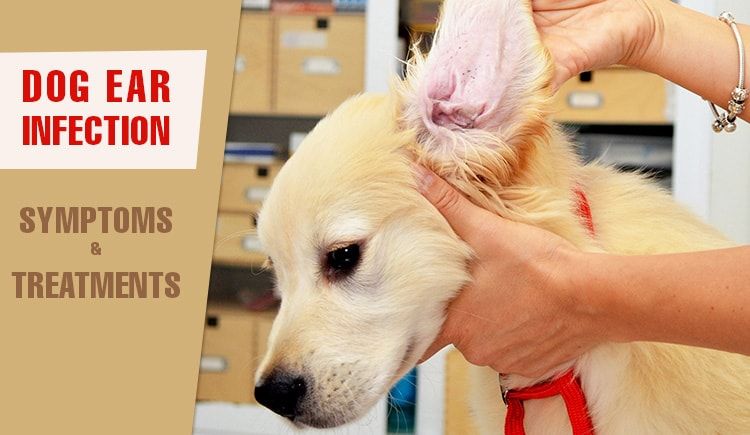Dog ears are often overlooked by most pet owners while grooming. This is the most common reason why dogs contract infections in this organ. It is because ears give a perfect environment to the microorganisms to flourish. Thus, if it is not cleaned regularly, the bacteria and yeast can multiply quickly, causing various infections in the ear. This problem is more frequent in dogs that have thick hair growth in the ear canal or have large floppy ears or the canal passage is quite narrow. Reason being, these kinds of ears trap more organisms and dust compared to the ears of other dogs.
Ear infections in dogs can also be caused due to certain health conditions like – allergies, hypothyroidism or Cushing’ s syndrome. Other than that, pollens, seeds, ear mites, excess moisture or hardened wax are also the possible causes of mild to severe ear infections in dogs. Rubbing and scratching of the ear can aggravate this situation; therefore, dogs must be distracted when found doing so.
Symptoms of Ear Infection in Dogs
An infected ear in dogs can be easily noticed through the smell and the changed behavioral patterns of the dog. These may include:
- Stinky odor from the infected ear
- Painful When You Touch His Ears
- The witty sound when the ears are rubbed – this happens due to excessive moisture
- An incessant shaking of the head so as to barge something out
- Sores or scabs in and around the ears
- Continuous scratching or rubbing of the ear
- Vomiting
- Nausea
- Redness of the ears
- Unequal eye pupils
Diagnosis And Treatment
Ear infections can be easily diagnosed by examining the ear canal using an otoscope. A spinal needle may be inserted to collect the fluid/discharge or wax in the ear. This sample is then given in the lab for the detection of a bacteria or yeast causing the infection. A vet may also conduct some blood tests to check for hypothyroidism, autoimmune disease or other problems.
Once the reason of infection is detected successfully, a vet may prescribe some Otosol drops, oral antibiotics or creams, and ointments. In some severe cases, surgery may also be required for stopping the infection from spreading to other parts.
How To Prevent Ear Infection In Dogs
It is important to pay attention to your dog and check him thoroughly at least once a day.
- Check his ears in and out.
- Remove any build up wax every 15 days.
- Do not put anything unwanted to clean your dog’s ears.
- Dry his ears completely after bathing or swimming.
- You can also clean his ears gently using a dampened cotton ball with ear solution.
- Visit professional groomer that can cut thick hair growth in ear canal safely.
- Do not skip vet visits. Regular checkups will ensure detection of an ear infection at the earliest.





